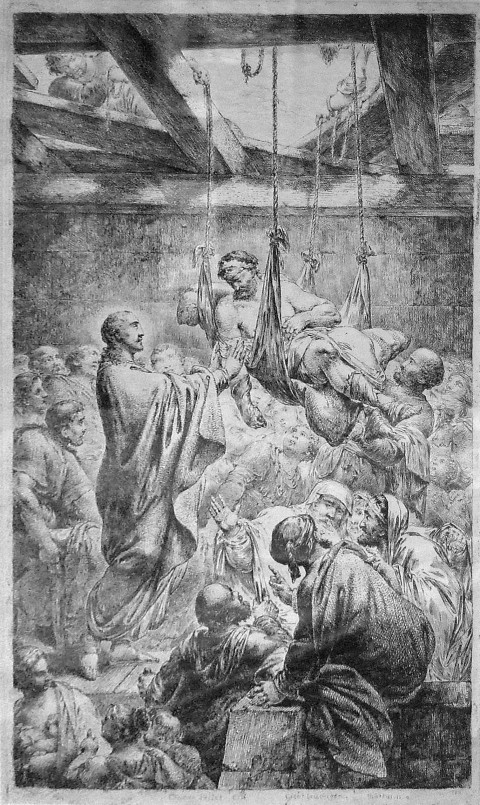Permission not to pray

We all have seasons when faith rings hollow and prayers seem tinny and meaningless. One such season for me came years ago as I was finishing seminary. At the time my seminary experience had become an almost exclusively intellectual affair. I learned a lot, but not much about praying or living in Christian community—at least not as much as I had hoped.
A dream I had at the time captured what I was going through. I dreamed that my whole body was reduced to a grotesquely huge head. My limbs and torso were miniature and useless—spaghetti noodles on a pencil barrel. As it happened, my head-self was situated in a bucket beside a swimming pool. Someone came along and bumped the bucket into the pool. I was drowning, but with my thin noodle arms and legs I couldn't do anything about it. Bubbling, I sank to the bottom and finally sucked water into my oversized mouth.
I took my dream of drowning to mean that I could not take in any more Christianity for a while. I was suffocating and needed some air. It wasn't a full-blown faith crisis, but I felt like I needed some time away, some time to breathe.




